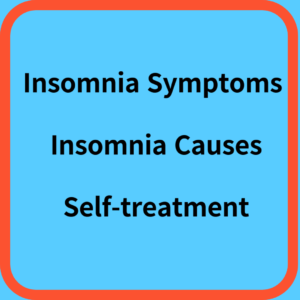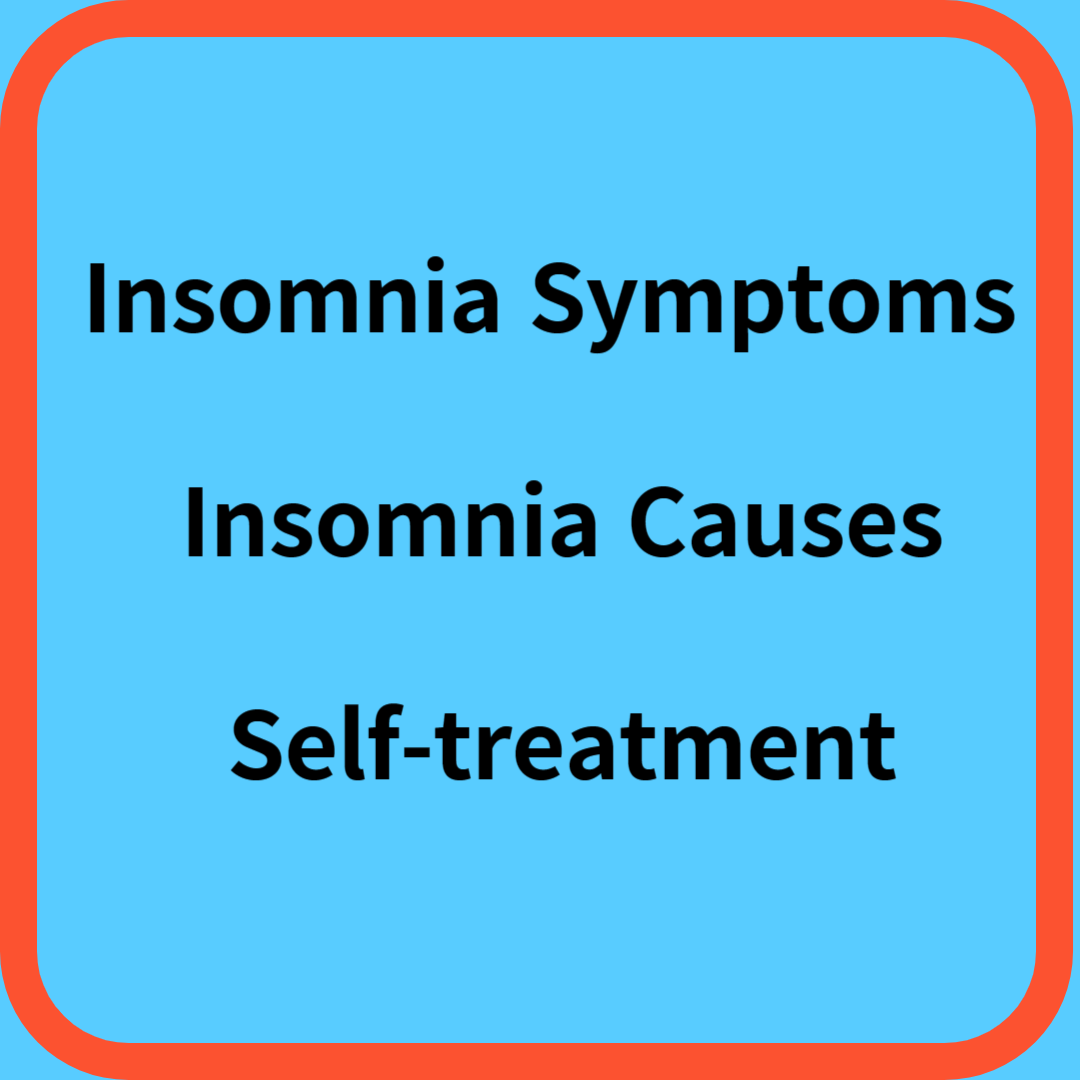Insomnia is a common sleep disorder characterized by difficulty falling asleep, staying asleep, or experiencing non-restorative sleep despite the opportunity to sleep. People with insomnia are often dissatisfied with the quality and quantity of their sleep, which can lead to impaired activity during waking hours and a decreased overall quality of life. Insomnia can be a short-term (acute) problem or a long-term (chronic) condition, depending on its duration and frequency.
In this article, we’ll cover insomnia symptoms, causes of insomnia, lifestyle habits to combat insomnia, and foods and nutrients that can help.

Insomnia symptoms
Insomnia symptoms can vary from person to person in severity, frequency, and impact on daily life. Insomnia can be categorized into several different aspects.
Difficulty falling asleep: People with insomnia often find it difficult to initiate sleep. They may stay in bed for long periods of time, feeling unable to transition from wakefulness to sleep.
Difficulty maintaining sleep: People who experience this symptom may wake up several times during the night and have difficulty falling back asleep. These awakenings can lead to poor sleep quality and anxiety.
Early morning awakenings: Some people with insomnia wake up much earlier than intended and have difficulty falling back asleep. This can make them feel sleepy and tired during the day.
Non-restorative sleep: Even if you spend enough time in bed, you may wake up feeling unrefreshed and tired. This can lead to daytime sleepiness, decreased alertness, and difficulty concentrating.
Impaired daytime functioning: Insomnia often causes a range of daytime symptoms, including fatigue, irritability, mood disorders, difficulty concentrating, and cognitive decline. These symptoms can negatively impact your work, relationships, and overall quality of life.
Anxiety and worry about sleep: Insomnia can lead to a vicious cycle of anxiety and worry that you may not be able to sleep. This anxiety can make sleep disorders even worse.
Increased time awake in bed: People with insomnia may spend more time awake in bed than asleep, leading to a greater association between bed and wakefulness than restful sleep.
Fatigue and lack of energy: Insomnia can lead to chronic fatigue and an overall lack of energy throughout the day. This can make even everyday tasks seem more difficult.
Physical symptoms: Insomnia can sometimes cause physical symptoms such as headaches, stomach discomfort, muscle aches, and tension.
Mood disorders: Insomnia is often associated with mood disorders such as depression or anxiety. Sleep disorders can contribute to the development or worsening of these conditions.
It’s important to note that the severity and persistence of these symptoms can vary from person to person. While intermittent sleep disturbances are common and do not necessarily indicate insomnia, if your sleep problems persist for more than a few weeks and have a significant impact on your daily life, it’s a good idea to see a doctor. A healthcare professional can diagnose the underlying cause of your sleep disorder and recommend appropriate treatment.
Causes of insomnia
Insomnia can have a variety of causes, and it’s often a combination of factors. Some common causes include
Stress and anxiety: Worry, stress, and anxiety can make it difficult to relax and fall asleep. Thinking too much or worrying too much can keep you awake at night.
Poor sleep habits: Irregular sleep schedules, inconsistent bedtimes, excessive napping during the day, and stimulating activities before bedtime can disrupt your body’s natural sleep-wake cycle and cause insomnia.
Medical conditions: Certain medical conditions, such as chronic pain, allergies, asthma, gastrointestinal disorders, and hormonal imbalances, can interfere with sleep. Conditions like restless legs syndrome and sleep apnea can also disrupt your sleep patterns.
Medications: Some medications, such as stimulants, antidepressants, and certain asthma medications, can disrupt sleep and contribute to insomnia.
Substance use: Alcohol, caffeine, and nicotine can interfere with sleep. Alcohol may make you sleepy at first, but it can actually disrupt the later stages of sleep and cause you to wake up frequently.
Mental health disorders: Conditions like depression, bipolar disorder, and post-traumatic stress disorder (PTSD) can cause sleep disorders, including insomnia.
Age: Insomnia is more common in older adults, which may be due to changes in sleep patterns and health issues that come with aging.
Environmental factors: Noise, light, temperature, and uncomfortable sleeping conditions can all make it harder to fall asleep or stay asleep.
Shift work or jet lag: Disruption of the body’s internal clock due to irregular work schedules or sudden time zone changes can cause insomnia.
Genetics: Some individuals may be genetically more susceptible to insomnia.
Psychological factors: Certain personality traits, such as being a perfectionist or tending to overthink, can increase the risk of developing insomnia.
Lifestyle habits to fix insomnia
Of course, there are several lifestyle habits you can adopt to improve your sleep and treat insomnia. These changes focus on creating an environment conducive to sleep and establishing healthy sleep habits. Here are a few lifestyle tips that you can easily implement.
Maintain a consistent sleep pattern: Try to go to bed and wake up at the same time every day, even on weekends. Being consistent will help regulate your body’s internal clock and improve your sleep quality.
Create a relaxing bedtime routine: Create a calming routine before bed to signal to your body that it’s time to relax. Examples include reading a book, taking a warm bath, practicing gentle yoga or meditation, or listening to calming music.
Limit screen time before bed: The blue light emitted by cell phones, tablets, and computers can interfere with the production of melatonin, the hormone that induces sleep. Avoid looking at screens at least an hour before bed.
Create a comfortable sleep environment: Keep your bedroom dark, quiet, and at a comfortable temperature to create an environment conducive to sleep. Consider using blackout curtains, a white noise machine, or earplugs if necessary.
Avoid stimulants: Reduce your caffeine and nicotine intake, especially in the afternoon and evening. These substances can disrupt your sleep.
Watch what you eat: Avoid eating fatty or spicy foods right before bed, as they can cause discomfort and indigestion. If you are hungry before bed, choose a light, healthy snack.
Stay active: Regular physical activity can help improve sleep quality. However, avoid strenuous exercise right before bed as it can be stimulating.
Limit naps: A short nap can make you feel refreshed, but avoid napping at night as it can interfere with your sleep.
Manage stress: Learn and utilize stress-relieving techniques such as deep breathing, progressive muscle relaxation, or mindfulness meditation. Managing stress can help calm your mind before bed.
Keep a sleep diary: Recording your sleep patterns, daily activities, and emotions can help you identify patterns that may be contributing to your insomnia. This can help you make the necessary adjustments.
Limit your fluid intake before bed: To avoid waking up at night to go to the bathroom, refrain from drinking fluids for a few hours before bedtime.
Use your bed only for sleeping: Avoid using your bed for work, watching TV, or other activities. This will help your brain associate your bed with sleep and rest.
Exposure to natural light: Exposure to natural light during the day can help regulate your body’s internal clock and improve your sleep-wake cycle.
Avoid looking at the clock: If you can’t sleep, resist the urge to keep checking the time. This can cause anxiety, which can make it even harder to sleep.
Drink herbal teas: Chamomile, valerian root, and lavender teas are well known for relaxing the mind and can help promote sleep.
It may take time for these changes to have a noticeable impact on your sleep quality. If you’ve tried these lifestyle changes and continue to struggle with insomnia, it’s important to speak with a healthcare professional for further guidance and support.
Foods and nutrients to help with insomnia
Certain foods and nutrients can contribute to better sleep by promoting relaxation and providing necessary building blocks for sleep-regulating hormones. While these foods may not be an immediate cure for insomnia, including them in your diet as part of a healthy lifestyle can help improve sleep quality over time.
Tryptophan-rich foods: Tryptophan is an amino acid that acts as a precursor (a substance that participates in a chemical reaction) to serotonin, a neurotransmitter that promotes relaxation and sleep. Foods rich in tryptophan include turkey, chicken, dairy (milk, yogurt, etc.), eggs, nuts (almonds, walnuts, etc.), and seeds (pumpkin, sunflower seeds, etc.).
Complex carbohydrates: Complex carbohydrates help increase the availability of tryptophan in the brain. Examples include whole grains like brown rice, quinoa, whole wheat bread, and oatmeal. Combining these foods with a source of protein can increase their sleep-promoting effects.
Magnesium-rich foods: Magnesium is a mineral that plays a role in relaxation and sleep regulation. Foods rich in magnesium include leafy greens like spinach and kale, nuts, seeds, whole grains, legumes, and dark chocolate (in moderation).
Foods that promote melatonin: Melatonin is a hormone that regulates the sleep-wake cycle. Some foods contain natural melatonin or help boost melatonin production. Cherries, especially tart cherries or cherry juice, are known to contain melatonin.
Foods rich in vitamin B6: Vitamin B6 is an essential nutrient for the production of neurotransmitters, including those involved in sleep regulation. Foods rich in vitamin B6 include poultry, fish, bananas, potatoes, and fortified cereals.
Herbal teas: Certain herbal teas are known to have a calming effect and can help you relax before bedtime. Chamomile, valerian root, and passion flower teas are commonly used for their potential sleep-inducing effects.
Calcium-rich foods: Calcium-rich foods, such as dairy products and leafy greens, can help support melatonin production and promote relaxation.
Omega-3 fatty acids: Omega-3 fatty acids, found in fatty fish such as salmon, mackerel, and sardines, flaxseed, and walnuts, have anti-inflammatory properties and may help improve sleep quality.
Vitamin D: Adequate vitamin D levels are associated with better sleep quality. You can get vitamin D from fatty fish, fortified dairy products, and sun exposure.
The key is balance and moderation: incorporating these foods into a balanced diet and managing stress can help you sleep better over time. If you have specific dietary concerns or health issues, it’s a good idea to consult a healthcare professional before making any significant changes to your diet.
These are some of the habits, diets, and nutrients that can help treat insomnia symptoms.
